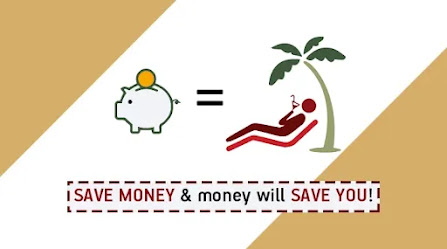Disadvantages of Not Saving
Not saving money can lead to many negative consequences that impact both financial and personal well-being. This comprehensive overview outlines the key disadvantages associated with a lack of savings.
1.
Financial Instability
Emergency
Situations
One of the most pressing
disadvantages of not saving is financial instability. Emergencies, such as
medical crises, car repairs, or sudden job loss, can occur without warning.
Without savings, individuals are forced to rely on credit cards or loans,
leading to increased debt and financial stress. This cycle can trap individuals
in a constant state of anxiety, struggling to make ends meet.
Living
Paycheck to Paycheck
Many individuals without savings
find themselves living paycheck to paycheck. This scenario not only limits
financial flexibility but also increases the risk of falling into debt if
unexpected expenses arise. The constant worry about covering basic needs can
diminish quality of life and overall mental health.
2.
Missed Opportunities
Investment
Savings are crucial for investment
opportunities that can yield significant returns. Without savings, individuals
miss out on potential investments in stocks, real estate, or other ventures
that can grow wealth over time. The absence of an investment strategy limits
future financial growth and can leave individuals financially stagnant.
Education
and Training
Investing in education and skills
development often requires upfront costs. Without savings, individuals may find
it challenging to afford courses, certifications, or other training programs
that could enhance their career prospects. This lack of investment in personal
and professional development can hinder long-term career growth and earning
potential.
3.
Future Challenges
Retirement
Concerns
Not saving for retirement can lead
to severe consequences later in life. Many individuals underestimate the amount
needed for a comfortable retirement, relying solely on Social Security or
pensions, which may not suffice. The absence of retirement savings can result
in a lower standard of living during retirement, increased financial stress,
and potential reliance on family members for support.
Inflation
Impact
Inflation gradually erodes
purchasing power, making savings essential for maintaining a standard of
living. Individuals who do not save are particularly vulnerable to inflation,
as they cannot adjust their financial plans to account for rising costs. Over
time, this can lead to a significant decrease in living standards.
4. Psychological Effects
Increased
Anxiety
The psychological impact of not
saving can be profound. Financial insecurity often leads to heightened anxiety
and stress, affecting mental health and overall well-being. Constant worry
about money can create a negative feedback loop, where stress influences
financial decisions, further exacerbating the situation.
Limited
Freedom
Without savings, individuals face
limitations in their lifestyle choices. The inability to take time off work,
pursue travel, or engage in leisure activities can lead to feelings of
dissatisfaction and resentment. This lack of freedom can adversely affect
relationships and overall happiness.
5.
Social Implications
Strain
on Relationships
Financial stress can strain
relationships, whether with partners, family, or friends. Constant discussions
about money can lead to arguments and resentment. Individuals without savings
may feel pressure to borrow from loved ones, which can create tension and erode
trust.
Dependency
on Social Support
In times of financial difficulty,
individuals without savings may rely more heavily on government assistance
programs or community support. While these resources are valuable, excessive
dependency can create a cycle of poverty that is hard to break. This reliance
can diminish motivation to pursue personal financial goals.
6.
Economic Consequences
Increased
Borrowing Costs
Without savings, individuals often
resort to borrowing to meet immediate needs. This can lead to increased
borrowing costs due to higher interest rates associated with credit cards and
personal loans. Over time, this cycle of borrowing can accumulate significant
debt, making it difficult to achieve financial stability.
Impact
on Economic Growth
On a larger scale, when a
significant portion of the population lacks savings, it can negatively impact
the economy. Reduced consumer spending, increased debt, and reliance on social
programs can hinder economic growth. Conversely, a society that encourages
saving fosters financial security, leading to stronger economic stability.
7.
Practical Implications
Difficulty
in Making Major Purchases
Without savings, making major
purchases such as a home or car becomes increasingly challenging. Individuals
may be forced to take out loans with unfavorable terms, resulting in higher
monthly payments and long-term financial strain. This can limit options and
prevent individuals from making significant life choices.
Lack
of Financial Knowledge
Individuals who do not save may also
lack financial literacy. The absence of savings often correlates with a lack of
understanding of budgeting, investing, and financial planning. This knowledge
gap can perpetuate poor financial habits and prevent individuals from making
informed decisions about their money.
Conclusion
The disadvantages of not saving are
far-reaching and multifaceted, affecting financial stability, personal
opportunities, future challenges, psychological well-being, social
relationships, economic health, and practical decision-making. It is essential
for individuals to prioritize saving as a fundamental aspect of financial
health. Establishing a savings habit, even in small amounts, can pave the way
for greater financial security, reduced stress, and enhanced opportunities for
the future. Taking proactive steps towards saving can transform one’s financial
landscape and contribute to overall well-being.




.jpg)
Comments
Post a Comment